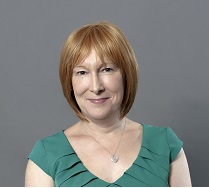At the end of 2021 the Ardent team had a training session with Rachel Reese of Global Butterflies to improve our understanding of the trans and non-binary space, specifically in relation to the workplace.
We all found it incredibly useful and thought provoking. Rachel kindly shared her thoughts on how the legal profession has changed over the last 10 years and how she would like to see it continue to change.
Can you provide a summary of the work that Global Butterflies does?
 We work with clients by offering training and consulting solutions (either face to face or virtually), advice and support. The business was started in 2015 focussing on the legal profession and corporate clients. Our training further includes a range of diversity courses, bystander and unconscious bias.
We work with clients by offering training and consulting solutions (either face to face or virtually), advice and support. The business was started in 2015 focussing on the legal profession and corporate clients. Our training further includes a range of diversity courses, bystander and unconscious bias.
We know that creating a diverse and inclusive culture will not only attract high calibre applicants and increase the talent pool but it also makes good business sense.
What made you set up Global Butterflies?
After training at law school I didn’t go into practice, instead developing a successful career as a Director at the College of Law. Outside the College I experienced a lot of transphobia throughout my career and I could see that the profession could do better. When I left the College I wanted to support the trans and nonbinary community, to show the benefits of employing trans and nonbinary people in the corporate space. Global Butterflies developed training for Human Resources teams and senior leaders, for Allies and for LGBT networks.
My wife has a corporate HR background and joined the business to help us diversify into further corporate delivery areas
How have you seen the legal profession change over the last 10 years in terms of diversity specifically in relation to LGBT+ issues?
The profession has really taken positive steps in the last decade. We are seeing partners who are out and lots more representation of lesbian and gay people. I think the legal profession is also leading on trans and nonbinary rights.
The Stonewall Workplace Index moved to include trans rights which encouraged many law firms to examine and improve their practice in this area. A lot of firms came to us for help with their trans and non binary work and consequently rate very highly in the index.
But when you look at statistics that suggest that 1% of the UK population is on the gender identity spectrum and that 65% of trans people are not out in the workplace, I would suggest that we don’t have that visibility in the legal profession. I’m very proud that the legal profession is leading on this agenda and while I believe the profession has improved its support of lesbian, gay people we need to do more work to support our bisexual and trans colleagues.
How would you like the legal profession to change over the next 5 years from a LGBT+ diversity perspective and do you think this is achievable?
I’d like to see law firms be much more openly supportive of LGBT+ people. Good employment practice isn’t enough, we need more corporate allyship for trans and non binary people. Legal firms could be taking a stronger line. I don’t want to see them sit on the fence, I want them to leverage their power as UK companies. We are among the worst in Europe for trans rights in the UK, being compared to Russia, Poland and Hungary by the Council of Europe.
There are opportunities to offer pro bono support for trans & nonbinary people in pursuit of their legal and civil rights. I have great admiration for the Good Law project and I would like to see more law firms getting involved in civil and human rights cases and challenging injustice publicly.
I also think there’s a real need for more intersectional visibility. For example, neuro diverse events with trans people, ethnic diversity events with trans people. We are all more than “just” trans.
What impact do you think Generation Z (dob 1996 – 2012) will have on the legal profession?
I am continually impressed by Generation Z. They are pushy, loud and they have good inclusion morals! According to the Harvard Business Review, 25% of Generation Z will change their gender expression once in their working lifetime.
This generation is the most fluid and inclusive generation – they also have good memories. I believe that they will be very keen to work with organisations that are openly supportive of LGBT+ people. They are taking notice of who is stepping up in this area including advocating publicly. This generation will look at these issues and vote with their feet. Organisations need to be ready as they enter the workplace, as employees and clients. I think there will be a big change, I’m really hopeful of the impact they will have.
What support services can you suggest to someone struggling with LGBT+ issues within the legal profession?
If your firm has an LGBT or Allies network, that’s a good place to access support in the first place. The Law Society has an active LGBT Lawyers division and the Interlaw Diversity Forum LGBT network is a good networking organisation. If you are a Barrister, FreeBar is a good place to go.
All these organisations provide support and the chance to connect with other LGBT+ people.
Thank you to Rachel for her time in talking to us. If you would like to know more about Global Butterflies, visit the website





